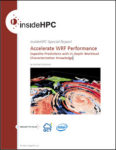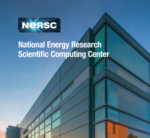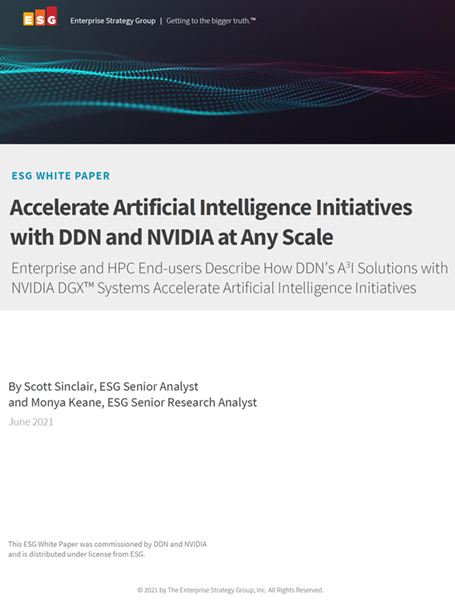The recent proliferation of new hardware technologies has galvanized the high-performance computing (HPC) community and created the ability to deliver the nation’s forthcoming exascale-capable supercomputers and data centers. It has also made LLVM-based compiler technology the default gatekeeper to these new systems. LLVM, an open-source collection of compiler and toolchain technologies, serves as a test bed for proposed parallelization extensions (e.g., the interoperability directive in OpenMP 5.1) and as a vehicle to provide production-quality parallel compiler implementations. Johannes Doerfert, a researcher at Argonne National Laboratory, notes that “LLVM is a vehicle to provide performant implementations of OpenMP….
Search Results for: parallelization
Anderson and Kochanski Share 2021 Howes Award
AMES, IOWA – A mathematician who has advanced wave-scattering calculations and a researcher who has modeled the complex interactions driving snow formations will share the 2021 Frederick A. Howes Scholar in Computational Science award. A selection committee comprised of alumni and friends of the Department of Energy Computational Science Graduate Fellowship (DOE CSGF) chose Thomas […]
ECP: SuperLU Library Speeds Direct Solution of Large Sparse Linear Systems on HPC and Exascale Hardware
HPC and AI technology consultant and author Rob Farber wrote this article on behalf of the Exascale Comuting Project. Lower-upper (LU) factorization is an important numerical algorithm used to solve systems of linear equations in science and engineering.[i] These linear systems of equations can be expressed as a matrix, which is then passed to a […]
Georgia Tech’s Vivek Sarkar Wins 2020 ACM-IEEE CS Ken Kennedy Award
The Association for Computing Machinery (ACM) and IEEE Computer Society (IEEE CS) have named Vivek Sarkar of Georgia Institute of Technology winner of the 2020 ACM/IEEE CS Ken Kennedy Award. Sarkar is recognized for “foundational technical contributions to the area of programmability and productivity in parallel computing, as well as leadership contributions to professional service, mentoring, […]
The Hyperion-insideHPC Interviews: Rich Brueckner and Doug Ball Talk CFD, Autonomous Mobility and Driving Down HPC Package Sizing
Doug Ball is a leading expert in computational fluid dynamics and aerodynamic engineering, disciplines he became involved with more than 40 years ago. In this interview with the late Rich Brueckner of insideHPC, Ball discusses the increased scale and model complexity that HPC technology has come to handle and, looking to the future, his anticipation […]
NERSC Finalizes Contract for Perlmutter Supercomputer
NERSC has moved another step closer to making Perlmutter — its next-generation GPU-accelerated supercomputer — available to the science community in 2020. In mid-April, NERSC finalized its contract with Cray — which was acquired by Hewlett Packard Enterprise (HPE) in September 2019 — for the new system, a Cray Shasta supercomputer that will feature 24 […]
Appentra raises €1.8M for its Parallelware Analyzer software
Today Appentra announced that the company has raised €1.8M in new funding in a round led by Armilar Venture Partners and K Fund. Appentra is a Deep Tech global company that delivers products based on the Parallelware technology, a unique approach to static code analysis specialized in parallelism. Our aim is to make parallel programming easier, enabling everyone to make the best use of parallel computing hardware from the multi-cores in a laptop to the fastest supercomputers. “During the last months we have been working hand in hand with the new investors, and we are proud to say that they will definitely bring in a strong expertise as international VCs specialized in B2B software companies, which will help us to fully realize Appentra’s vision.”
Zapata Computing opens early access to Orquestra for quantum-enabled workflow
Today Zapata Computing announced an Early Access Program to Orquestra, its end-to-end platform for quantum-enabled workflows. Providing the most software- and hardware-interoperable, enterprise quantum toolset, Orquestra enables advanced technology, R&D and academic teams to accelerate quantum solutions for complex computational problems in optimization, machine learning and simulation across a variety of industries. “Orquestra is the only system for managing quantum workflows. By providing frictionless collaboration and rapid iteration, it helps Zapata and our entire community accelerate the discovery and development of near-term quantum algorithms and applications.”












